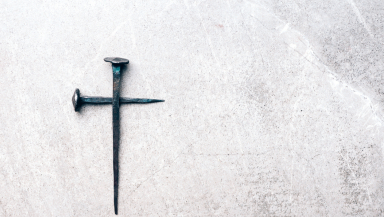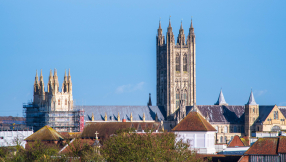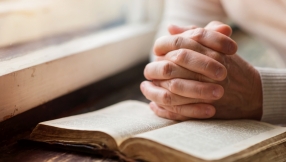
Easter is here! For many, it’s a season filled with joy — family gatherings, festive meals, egg hunts, and a general air of celebration. While these are all good and fun, it’s also important, even necessary, to pause and reflect on the true weight of this season.
Specifically, on Good Friday, the day Jesus Christ willingly embraced unimaginable suffering for our sake.
Now, let’s be honest — calling the day of Jesus’ crucifixion and death “Good” can sound strange, even contradictory. What’s good about an innocent man dying a brutal death on a cross?
The answer lies in the purpose and outcome of that sacrifice. Good Friday is “good” because it marks the very foundation of our Christian faith — that through Jesus’ death and resurrection, we’ve been offered salvation, freedom, and eternal life.
But let’s not gloss over the gravity of that sacrifice. It was our sin that placed Jesus on that cross. We were the ones who turned our backs on God, trapped ourselves in cycles of sin, and found no way out. We could not save ourselves.
Isaiah 53:5-6 prophesies this, “But He was pierced for our transgression, He was crushed for our iniquities … We all, like sheep, have gone astray, each one of us turned to our own way; and the Lord has laid on Him the iniquity of us all."
Yet, in His immeasurable love and mercy, God made a way. He sent His only Son, Jesus, to rescue us — to break the chains of sin and reconcile us back to Himself (John 3:16; Colossians 1:13-14; 2 Corinthians 5:18-19).
Because God is just, sin cannot go unpunished. And so, Jesus — God in the flesh — became the perfect sacrifice, sin itself, taking on the punishment meant for us so we could be declared righteous and blameless before a holy God (2 Corinthians 5:21; Romans 3:25-26).
We often forget that while Jesus is fully divine, He was also fully human (Philippians 2:6; John 1:14). This means that He felt every lash, every thorn, every nail.
From the garden of Gethsemane, we see His humanity on full display. In Matthew’s (26:36-46) gospel, Jesus trembled, sweated blood, and pleaded with the Father that the “cup” be taken from Him — not once, but three times. That cup represented the full weight of God’s judgment against sin (Psalm 75:8; Isaiah 51:17; Job 21). And Jesus didn’t shrink back simply because of the physical agony that awaited Him, but because of the spiritual torment — the burden of carrying all of humanity’s sin, and the heartbreak of experiencing separation from the Father for the first and only time.
This was supposed to be our destiny. He didn’t have to go through with it. He had the freedom to walk away. But He chose obedience. He chose the cross – the humiliation, mocking, torture and abandonment. He chose us. Because it was the only way we could be saved.What looked like the wrongful execution of an innocent man, driven by the jealousy and corruption of religious leaders, turned out to be the greatest demonstration of love the world has ever known. What appeared to be a moment of defeat was actually the beginning of ultimate victory.
That’s the true power of Good Friday.
The cross is a reminder of God’s boundless, unconditional, and sacrificial love for us. It shows us that no depth of human evil can overcome the goodness of God. It proves that God is always at work — turning pain into purpose, tragedy into triumph — and that His will cannot be thwarted.
So, as we come together to mark Easter, let’s not rush past Good Friday. Let it humble us. Let it remind us of the love that held Jesus on that cross — not the nails, but His love for you and me.
And let it move you to answer this: how will you respond to the love that held Him on the cross?













